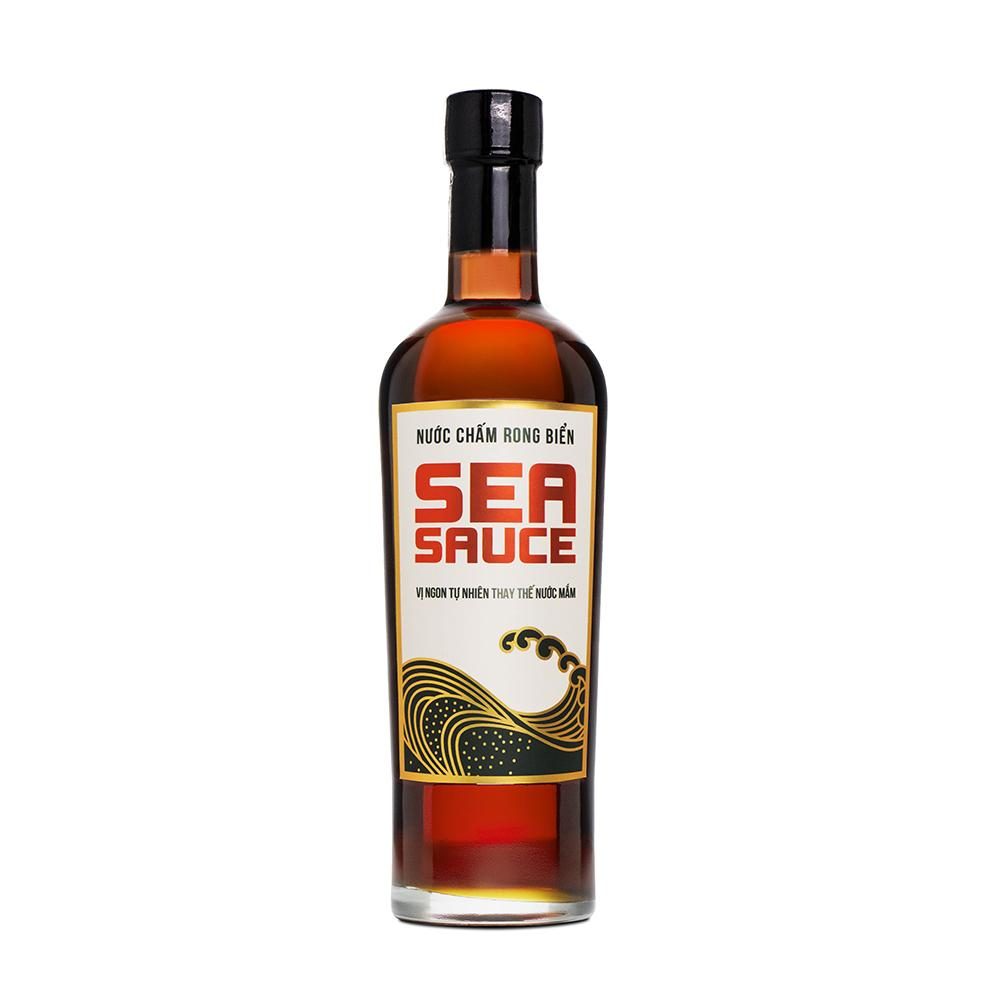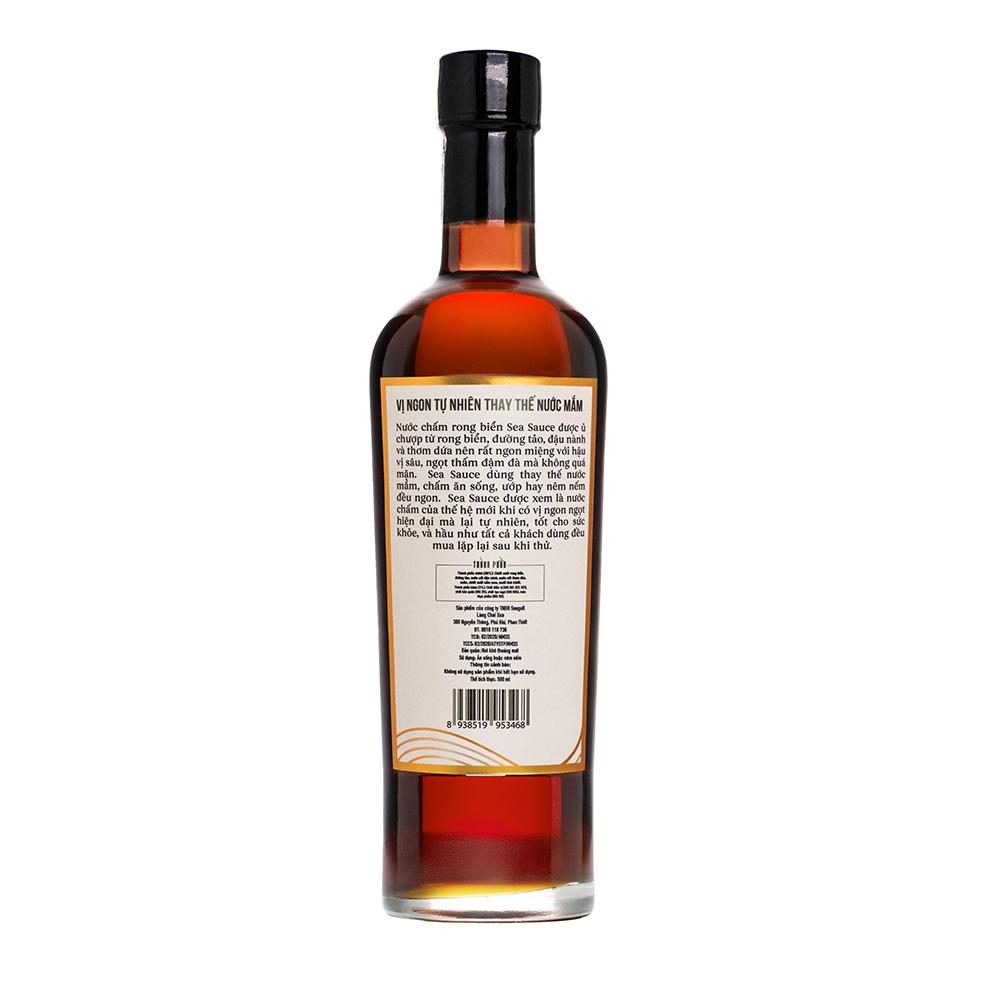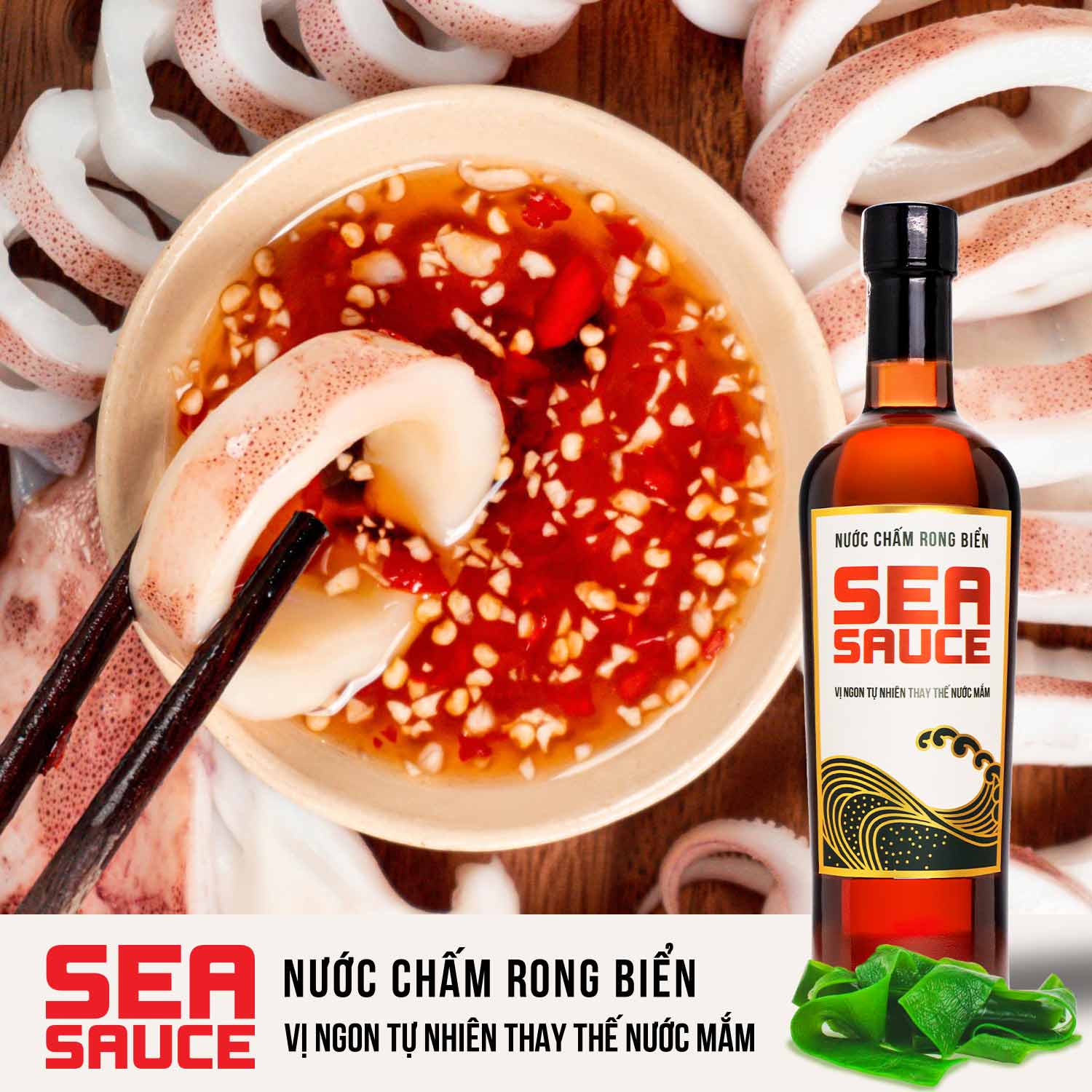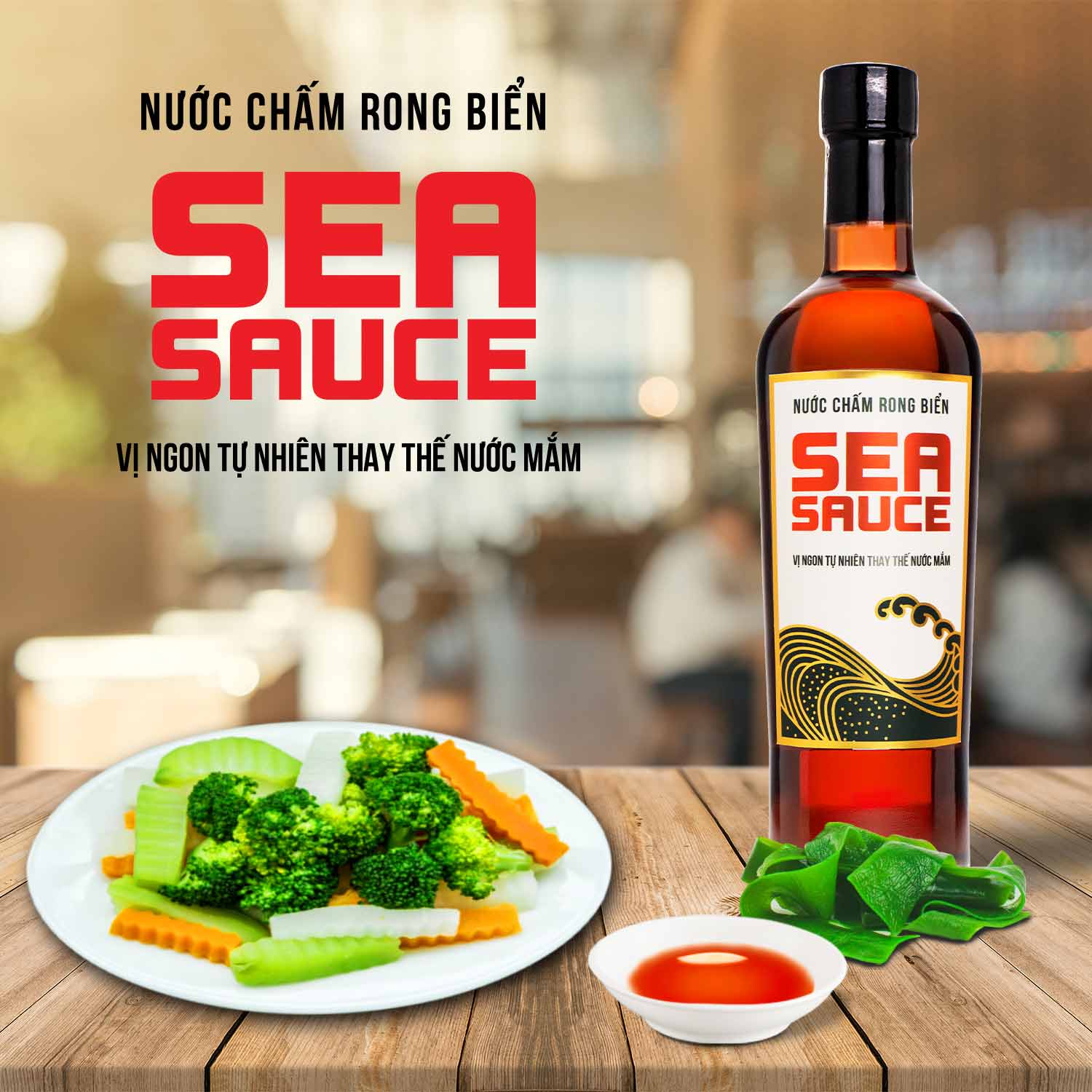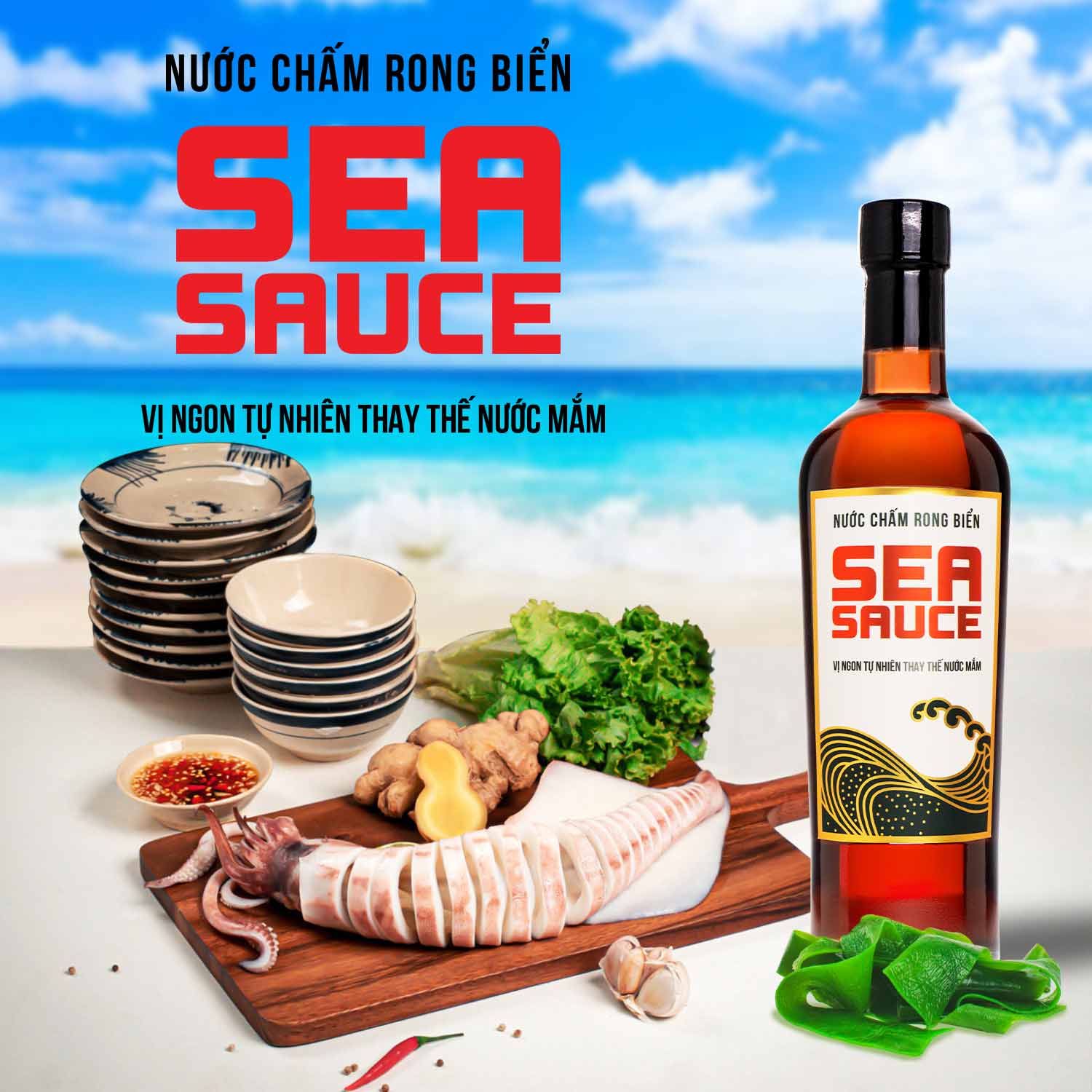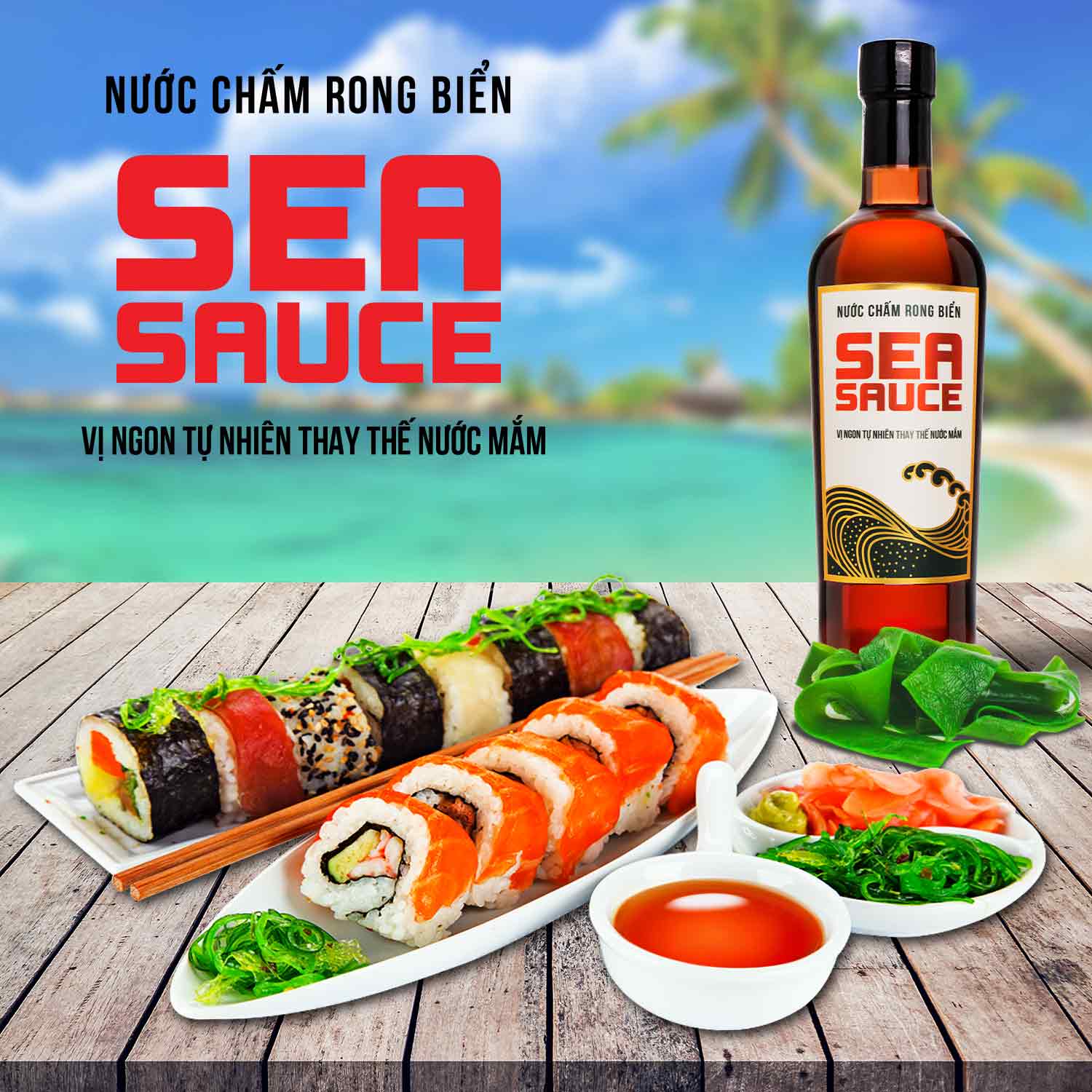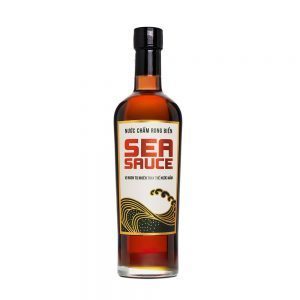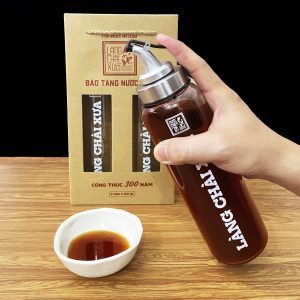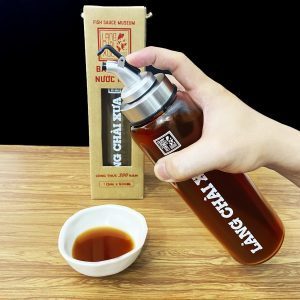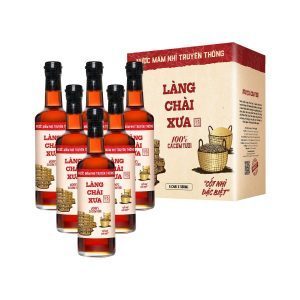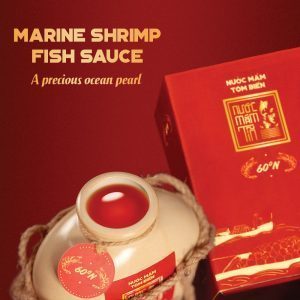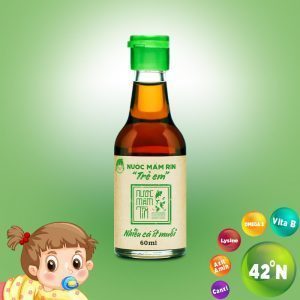“Another tasty sauce besides fish sauce”
Sea sauce, a dipping sauce made from seaweed, is a product of Lang Chai Xua fish-sauce museum with the vision “Another tasty sauce besides fish sauce”. Sea sauce is expected to become a widely used dipping sauce in the future.
The materials are 100% natural, namely fresh seaweed, pineapple juice, algae sugar and pure salt. Sea sauce can be used as an alternative to fish sauce in many circumstances. For example, sea sauce can be dipped with other dishes, or mixed with other sauces, or used in seasoning to flavor the dishes.
Besides that, Sea sauce has numerous plus points over fish sauce. First, because of its components, it is less salty compared to fish sauce. You can feel the sweet taste slightly lingering in your mouth after the first taste. Hence, it perfectly suits the taste of young people. From the old days until now, fish sauce has become an indispensable part of everyday’s meal in Vietnam. However, recent medical advice shows that residents should cut down on the amount of salt used in every meal to prevent cardiovascular and blood pressure-related diseases. In this matter, Sea sauce is surely an ideal choice for health. Second, the materials are completely from natural plants, therefore, Sea sauce suits a variety of diets. Meat eaters, vegetarians, and dieters can use this product. Green eating has become increasingly popular in today’s world and become a trend among health-conscious individuals. Furthermore, many young people are unwilling to use fish sauce due to its fishy scent, Sea sauce is a right choice for them.
Like fish sauce, seaweed sauce must undergo years of fermentation in order to gain a high level of protein, therefore, it can completely replace fish sauce in providing nutritious meals. Products made from seaweed are favored by Japanese and Korean thanks to its nutritional value, namely detoxifying harmful substances, improving cardiovascular health, strengthening thyroid function, preventing cancer, etc.
Considering all benefits given above, Sea sauce – seaweed sauce deserves to be named as “the sauce of the future” with exquisite taste and numerous health benefits that it brings.
Why should you cut down on salt in your meals?
At the time, official statistics illustrate that Vietnam has had approximately 12 million citizens with high blood pressure, which means there would be a diseased person amongst five adults. Especially, around 60% of people with hypertension have not been detected and over 80% of them have not yet received treatment.
Consumption of a high volume of salt is a key cause of high blood pressure, stroke, and heart attack. Cardiovascular diseases are the predominant culprit in Vietnam, accounting for 31% of deaths nationwide.
On July 23, 2020, the Ministry of Health appealed to the public to eat a lower-salt diet to prevent hypertension, cardiovascular diseases, and kidney disease.
Accordingly, to minimize the burden of related diseases and strengthen their health, residents necessarily halve their daily salt intake. Provinces and cities are also required to boost media activities, thereby, heightening the local’s awareness, especially over-40-year-old people to alleviate the prevention of hypertension and cardiovascular diseases as well as to practice blood pressure tests on a regular basis to detect the disease in the early stage.
Incredible benefits of Seaweed
There is no doubt that seaweed is a prominent food in Asian countries in recent years because of not only easy-to-eat taste, and simple cooking method, but also its potential benefits for health. Seven benefits of seaweed are as follows:
Support weight loss
Seaweed contains alginate, a substance preventing the formation of fat in the gut. In accordance with many researchers, it can stave off obesity through alginates by blocking fat-digesting enzymes.
Likewise, the pigment in kombu seaweed called fucoxanthin – a type of carotenoid that can encourage the production of proteins involved in fat metabolism, can aid in weight loss.
Support Bone tissue
Seaweeds, especially dark green varieties, contain high levels of calcium. Furthermore, they contain magnesium, another mineral assisting bone health.
Promote cardiovascular health
Seaweed contains peptides that effectively hinder blood pressure, which is a great mechanism to fight against heart disease.
Balance blood sugar
Adding seaweed to daily meals can moderate blood sugar levels and keep the feeling of being full longer.
Research has indicated that alginate in brown seaweeds, particularly arame, can strengthen intestinal mucus and slow down carbohydrate digestion. Similarly, alginate can reduce cholesterol and glucose absorption in obese patients.
The “plant-based eating” phenomenon in recent years
In recent years, many people are inclined to follow a whole or mostly plant-based diet as a health savior. This originates from a civilized society with an abundance of tasty and convenient but unhealthy dishes, culminating in tons of modern diseases, such as heart disease, cancer, and stroke.
Whole food plant-based (WFPB) diet is not a vegetarian or vegan diet, yet primarily means the consuming of unprocessed or minimally processed plant food, including fruits, vegetables, whole grains, and legumes; no meat or very little meat, no dairy products, eggs, or refined foods.
The book “5 Holistic Health Secrets” by Dr. T. Colin Campbell points out the considerable benefits of this trend:
A plant-based diet does wonders for the heart
The more saturated fat and cholesterol from animal sources we consume, the higher risk of heart disease. It is heart disease that causes the highest mortality rate in the world, even higher than cancer.
International comparisons between countries depict that ethnic groups that adopt a traditional plant-based diet are less likely to undergo heart disease. In addition, studies of individuals in separate populations manifest that people with whole-plant diets not only have lower cholesterol levels but also lower the risks of cardiovascular disease.
The plant-based diet is best in cancer prevention and treatment
Animal protein increases volumes of a hormone called IGF-1 (the element of cancer) and a diet high in casein (the main protein of cow’s milk) encourages more carcinogens to enter cells. Meanwhile, a plant-based diet can inhibit or intercept cancer growth.
A plant-based diet is the best way to fight diabetes and partially surmount autoimmune disease
An array of international studies has revealed that type 1 diabetes (a serious autoimmune disease) is linked to cow’s milk consumption and early weaning. Also, there is evidence that multiple sclerosis roots in the consumption of animal foods, especially dairy products.
In the interim, a plant-rich diet can help hinder or even block multiple sclerosis; therefore, type 2 diabetics can recover without medication in need.
A plant-based diet is best for the kidneys, bones, eyes, and brain
There are specific serious issues to be encountered when consuming a high quantity of animal protein: kidney stones, cataracts, cognitive disorders, vascular dysfunction, mild stroke, osteoporosis, and so on. In this event, a whole plant-based diet can help deal with these diseases.
Acknowledging the trend, Seaweed Sauce was born with all-natural plant-based ingredients, bringing a distinctive and healthy taste. This advent would replace fish sauce with the aim of becoming the “sauce of the future”.
What foods go with Seaweed Sauce?
With a distinctively flavorful taste, Sea Sauce is suitable to be used as a dipping sauce with varieties of dishes, such as boiled meat, boiled squid, steamed fish, or steamed vegetables. Apart from that, you can use Sea Sauce to marinate and season to flavor a wonderful family meal!

